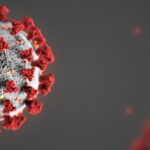The American Academy of Pediatrics (AAP) recommends that all children ages 6 months and older are vaccinated for influenza for the 2019-2020 season, preferably by the end of October, with either the flu shot or the nasal spray vaccine.
The AAP expresses no preference for the shot or the nasal spray vaccine this season, in accordance with guidance provided by the Centers for Disease Control and Prevention (CDC), as described in the policy statement, “Recommendations for Prevention and Control of Influenza in Children, 2019-2020.” The statement will be published in the October 2019 Pediatrics.
“The best way to keep children healthy and in school is to get the flu vaccine by the end of October,” said Flor Munoz, MD, FAAP, member of the AAP Committee on Infectious Diseases. “The flu virus is unpredictable, spreads easily and can cause serious illness, so we urge vaccination in children and adolescents to protect them, their family and community, as well.”
The annual flu vaccine significantly reduces a child’s risk of severe influenza and death, especially in children younger than 5 years old and those with underlying medical conditions. As of Aug. 10, the United States CDC reported 129 influenza-associated pediatric deaths occurring during the 2018-2019 season. During the 2017-18 season, the CDC estimated that 80 percent of the 186 children who died from flu-associated complications had not been vaccinated against influenza.
This year, all influenza vaccines will be quadrivalent vaccines, to protect against the four strains of the influenza virus expected to circulate this season, including two A and two B strains. All licensed vaccines contain the same influenza viruses. The quadrivalent inactivated influenza vaccine (IIV4) is available for intramuscular injection for everyone 6 months of age and older, including healthy persons and those with high-risk conditions; the live attenuated influenza vaccine (LAIV4) is a nasal spray mist that is also appropriate for healthy children 2 years of age and older.
The AAP also recommends:
- Any licensed vaccine appropriate for age and health status can be used to protect children and adolescents against influenza. The AAP does not have a preference for one vaccine over another.
- Influenza vaccines are not licensed for infants younger than six months, and so to protect them it is important that the people around them are vaccinated and that their mothers receive the influenza vaccine during pregnancy
- Children age 9 and older need only one dose of influenza vaccine.
- Children 6 months through 8 years old may need two doses, depending on their vaccination history. Two doses are needed for children receiving influenza vaccine for the first time and for any child who has not received two doses of vaccine prior to July 1st, 2019 (even if given in different seasons). The interval between the two doses should be at least four weeks. Start vaccinating these children as soon as it becomes available in order to finish both doses by the end of October.
- The dose of the inactivated vaccines for children 6 through 35 months of age may vary depending on the vaccine product. Any licensed, age appropriate influenza vaccine and dose can be used in this age group, with no preference.
- Children with egg allergy can receive influenza vaccine without any additional precautions from those for any vaccine.
Pregnant women may receive the inactivated flu vaccine at any time during pregnancy to protect themselves and their infant. Postpartum women who were not vaccinated during pregnancy are encouraged to receive the flu vaccine before discharge from the hospital. Receiving the vaccine while breastfeeding is safe for mothers and their infants.
Antiviral medications are important in the treatment and control of influenza, but they are not a substitute for vaccination.
The AAP supports mandatory vaccination of health care personnel to prevent flu and reduce risk in caring for individuals who are at a high risk of influenza-related complications.
“The best way to protect our children against flu is to get the influenza vaccine,” Dr. Munoz said. “Why take a chance with the flu? Please vaccinate!”
Additional Information from HealthyChildren.org:
- Which Vaccine Should My Children Get This Year?
- The Flu
- Is it safe for a baby to get the flu vaccine in March and April, and then get the next season’s flu vaccine in September?, Ask the Pediatrician
- Preventing the Flu: Resources for Parents and Child Care Providers





